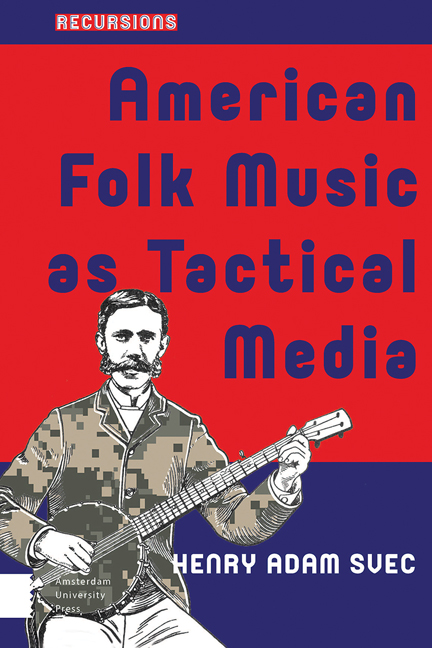Book contents
- Frontmatter
- Contents
- Acknowledgments
- Introduction
- 1 Alan Lomax’s Deep Rivers of Digitality
- 2 Pete Seeger’s Time-Biased Tactics
- 3 Bob Dylan’s Noisy Faces
- 4 A Folk Approach to Imaginary Media
- 5 Another Authentic Folk Is Possible
- 6 American Folk Music as Strategic Media
- Epilogue
- Notes
- Lyrical Credits
- References
- Index
2 - Pete Seeger’s Time-Biased Tactics
Published online by Cambridge University Press: 28 January 2021
- Frontmatter
- Contents
- Acknowledgments
- Introduction
- 1 Alan Lomax’s Deep Rivers of Digitality
- 2 Pete Seeger’s Time-Biased Tactics
- 3 Bob Dylan’s Noisy Faces
- 4 A Folk Approach to Imaginary Media
- 5 Another Authentic Folk Is Possible
- 6 American Folk Music as Strategic Media
- Epilogue
- Notes
- Lyrical Credits
- References
- Index
Summary
‘Our general theory is to throw as many songs as we are possibly able to do out into the public air, so to speak, and let the people choose which they think are good and which they think are bad. Which method can you think of that would be more democratic than that?’
Pete SeegerIntroduction
Pete Seeger, who performed as a young man with Woody Guthrie in the Almanac Singers, and who would go on to a long career as a singer, songwriter, journalist, activist, and general ‘elder statesman’ of the folk field, might seem to be an excellent example of the genre's nostalgic approach to communication. Seeger, for instance, is the one who allegedly exclaimed his desire to chop Bob Dylan's microphone cord on the evening in Newport in 1965 when the younger songwriter traded in his acoustic guitar for an electric Fender Stratocaster. If we believe Seeger's retrospective claim that his only problem was that the sound was poorly mixed during the set, and that Dylan's masterful lyrics did not come through, we can recognize a fear of one of rock music's characteristic messages, noise. Seeger's gesture has often evoked a fear of mediation and a desire for face-to-face communion. This apparent longing for transparency found its way into Seeger's own writings as well. The song ‘The Ballad of Old Monroe’, for instance, puts forward a critique of mass media as ideological apparatuses that might be remedied by the veracity of face-to-face communication: ‘The papers and the TV never told a story straight / So listen now, I will to you the honest facts relate’. Seeger often idealized the possibility of communicating outside mass-media channels, ironically often using media such as LPs to do so. In one of his most fascinating columns for Sing Out!, he even takes aim at Marshall McLuhan directly: ‘If any McLuhanites are listening, I challenge them to let me visit their mailbox every morning for a month, and remove the contents of all their letters, presenting them only with the empty envelopes. The envelope is not the message. Just a part of it.’
- Type
- Chapter
- Information
- American Folk Music as Tactical Media , pp. 53 - 70Publisher: Amsterdam University PressPrint publication year: 2017



